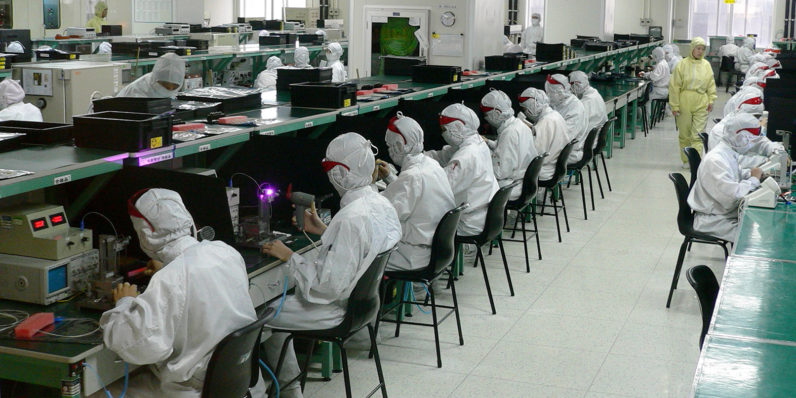Senator Grassley is on the case. He listed names asking for all communications from the following people: For the period from March 2016 through January 2017, please provide all communications to, from, copying, or relating to: Fusion GPS; Bean LLC; Glenn Simpson; Mary Jacoby; Peter Fritsch; Tom Catan; Jason Felch; Neil King; David Michaels; Taylor Sears; Patrick Corcoran; Laura Sego; Jay Bagwell; Erica Castro; Nellie Ohr; Rinat Akhmetshin; Ed Lieberman; Edward Baumgartner; Orbis Business Intelligence Limited; Orbis Business International Limited.; Walsingham Training Limited; Walsingham Partners Limited; Christopher Steele; Christopher Burrows; Sir Andrew Wood, Paul Hauser;4 Oleg Deripaska; Cody Shearer; Sidney Blumenthal; Jon Winer; Kathleen Kavalec; Victoria Nuland; Daniel Jones; Bruce Ohr; Peter Strzok; Andrew McCabe; James Baker; Sally Yates; Loretta Lynch; John Brennan. Details here.
 What happened? Hey Hillary how about you tell America who coordinated all these people and who was the architect and save a LOT of misery and resources….
What happened? Hey Hillary how about you tell America who coordinated all these people and who was the architect and save a LOT of misery and resources….
*** The political wheels go round and round and given the anti-Trump envoy that has been mobilized, this operation and army of people will continue through the 2020 general election. AG Jeff Sessions and his Justice Department along with his Inspector Generals and Congressional committees are not likely to complete all these investigations any time soon….so remember these names as we head into the mid-term election and to the general election. And we have not even gotten to the whole FBI equation….
1. Shall we start with Kamala Harris? The sister of Sen. Kamala Harris, the California Democrat who has been floated as a potential presidential candidate in 2020, and the political director for the American Civil Liberties Union (ACLU) are also involved with the group.
The Democracy Forward Foundation, a D.C.-based 501(c)3 nonprofit with a 501(c)4 arm called Democracy Forward, describes itself as a “nonpartisan” group that “scrutinizes Executive Branch activity,” according to its mission statement. Anne Harkavy, the group’s executive director, was a senior legal advisor to the general counsel of Obama for America, Obama’s former campaign committee. Corey Ciorciari, its policy and strategy director who oversees Democracy Forward’s policy, research, and communications teams, was a policy advisor for Clinton during her 2016 campaign.
Javier Guzman, the legal director, came from the Department of Justice. Alex Hornbrook, Democracy Forward’s operations director, served as director of scheduling and advance for Hillary for America, Clinton’s campaign committee.
Democracy Forward’s board of directors also features a number of liberal power players.
Elias chairs the board that includes Podesta. Maya Harris, Sen. Kamala Harris’s sister who helped craft Clinton’s agenda for the failed campaign and is a political analyst for MSNBC, is also a member of its board.
Faiz Shakir, who became the national political director of the ACLU in January; Ronald Klain, a Democratic operative who was President Obama’s “Ebola Czar”; Matthew Miller, an MSNBC justice and security analyst; and Scott Nathan, a senior fellow at the Center for American Progress, which was founded by Podesta, also sit on the board of directors. More here.
2. Congressional documents and recently leaked texts between Sen. Mark Warner (D-Va.) and a registered foreign agent for a Russian aluminum oligarch indicate that Daniel J. Jones is intimately involved with ongoing efforts to retroactively validate a series of salacious and unverified memos produced by Christopher Steele, a former British intelligence agent, and Fusion GPS. Jones, a former Feinstein staffer who wrote a controversial top-secret report on alleged torture by the Central Intelligence Agency (CIA), currently runs the Penn Quarter Group, which bills itself as a “research and investigative advisory” and is inconspicuously named after the downtown Washington DC neighborhood where its office is located.
3. How about Shailagh Murray, a former journalist who served as senior adviser to Obama and as former Vice President Joe Biden’s deputy chief of staff? Murray’s husband is Neil King, a former Wall Street Journal reporter who worked at the newspaper at the same time as Fusion GPS’s three co-founders, Glenn Simpson, Peter Fritsch, and Tom Catan. Murray also worked at The Journal until 2005. She joined the Obama administration in 2011. Devin Nunes also sent a letter and questionnaire to Colin Kahl, who served as national security adviser to Biden.
4. Okay, what about CNN ad Evan Perez? Perez covers the Justice Department for CNN. Glenn Simpson, the Fusion co-founder most often associated with the dossier, is used to working on stories with Perez. As reporters at The Wall Street Journal, Perez and Simpson regularly co-authored stories on national security. Another Fusion founder, Tom Catan, worked as a reporter for the Journal at the same time as Perez and Simpson. The third Fusion co-founder, Peter Fritsch, worked above Perez and Simpson as the senior national security editor. Details and evidence is here.
5. Seems Marc Elias as the chair of Perkins Coie’s Political Law Group, was/is the grand marshal of this operation. Marc served as general counsel to Hillary for America, Hillary Rodham Clinton’s presidential campaign in 2016. He served in the same role for John Kerry’s presidential campaign in 2004. His political committee clients include the Democratic National Committee, Democratic Senatorial Campaign Committee, Democratic Congressional Campaign Committee, Democratic Governors Associations, National Democratic Redistricting Committee, Priorities USA, Senate Majority PAC, House Majority PAC and EMILY’s List. He currently serves as the chair of two organizations: Democracy Forward and We the Action. He serves on the board of directors of Priorities USA and on the advisory board of Let America Vote and Access Democracy. Marc is the former co-chair of the bipartisan Committee to Modernize Voter Registration. Marc served on the American Bar Association’s Standing Committee on Election Law and as an adviser to two American Law Institute projects: Principles of Government Ethics and Principles of Election Law: Resolution of Election Disputes.
Hillary Clinton’s campaign lawyer Marc Elias, allegedly denied media reports that the Clinton campaign had any connection to the controversial Russian Dossier. After the Washington Post ran an extensive story on how the Clinton Campaign and Democratic National Committee hired controversial research firm Fusion GPS to dig up dirt on Donald Trump in Russia in the “Russian Dossier” matter. Reporters at the New York Times have accused Elias of lying in past categorical denials of any connection to Clinton or the DNC. The reports indicate that not only did the Clinton team fund the opposition research but that Elias may have been the person handling much of the arrangements. Now Elias’ position has worsened after a report out of Congress that he was present in an interview when campaign chairman John Podesta denied any campaign role in the funding or acquisition of the dossier.





